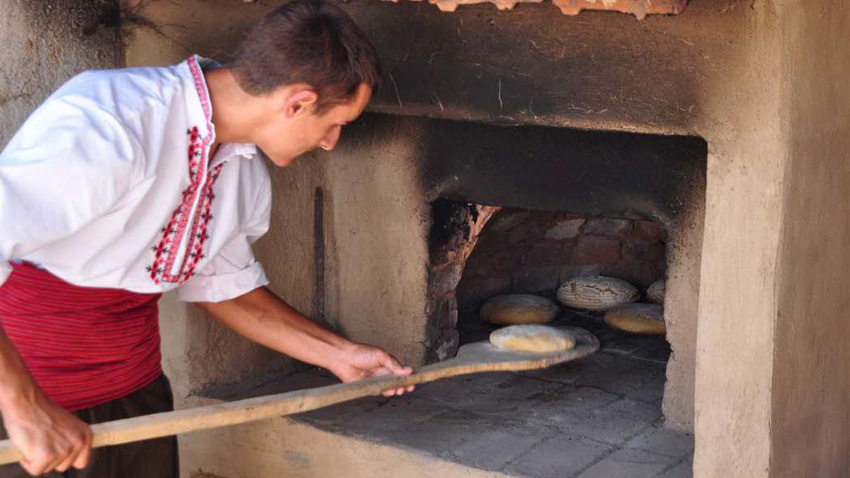Five years ago, two Dutch environmental organizations - Ark and Avalon focused on the Eastern Rhodopes in Bulgaria. This is the mountain of the legendary Thracian priest Orpheus and is characterized with unique biodiversity and preserved nature. The project of the NGOs was entitled New Thracian Gold and its strength lies in the combination of 3 elements - habitat restoration, eco-tourism and organic farming into a single integrated approach. The project ends this year with significant achievements in the creation of models for sustainable development of the Eastern Rhodopes. ARK team leader Frank Zanderink told us more:
When in 2009 the New Thracian Gold project started in the Eastern Rhodopes only seven certified organic producers existed. Today there is a network of 40 certified farms. A number of guest houses were built too. The first detailed tourist map of the Eastern Rhodopes was published too, together with a guide in Bulgarian and English, as well as a map for the TransRhodope eco trail. The successful reintroduction of large herbivores previously extinct in the region plays a major role in reviving essential natural processes. This has also led to a rise in the number of tourists in the region.
One of the local organic farmers - Petko Angelov practices the so-called biodynamic farming. It is based on ancient agricultural practices that rely on the lunar calendar, the influence of the stars and sun. Mr. Angelov grows an ancient variety of wheat dating back to Thracian times. It always sowed on the day of vernal equinox and reaped on the day of the autumnal equinox. We plough and sow barefeet, Mr. Angelov explains and adds:

"The energy contained in the earth needs to pass to the farmer and vice versa. Vital energies must be exchanged. For the ancient Thracian the center of everything was mother Earth. Their agriculture was gentle to the earth and they kept to principles recommended by a number of institutes today. We do not practice deep plowing. In bio-dynamic farming a strict schedule of the processes is kept. Different types of agricultural work is done according to astronomical and other natural factors. Over the past few years we have been trying to restore Thracian agricultural practices dating back to 8 thousand years ago. Last year we made a test sowing a field according to modern methods and one according to the Thracian practices. We were pleasantly surprised to see that application of the bio-dynamic principles led to much better results. This way productivity is increased without using any herbicides and fertilizers. We use special minerals that are very common in our country such as zeolites. When put in the soil they enrich it slowly for a period of up to 10 years.”

People can get acquainted with some of these curious agricultural practices borrowed from the ancient Thracians during the festival of bread that will take place in the village of Rabovo in July. The event has been attracting more and more attention over the years and the festival is visited by a number of Bulgarian, Dutch and German tourists.
English version: Alexander Markov
The votes in the early parliamentary elections on October 27 outlined an even more diverse parliament. The initial forecasts were for a 9-party National Assembly, but the results that the CEC announced after processing all the..
The highest concentration of microplastics along the Bulgarian Black Sea coast is found in the Bay of Sozopol, according to a study by the Laboratory of Marine Ecology in Sozopol published in the international journal Marine Pollution Bulletin...
The Bessarabian Bulgarians are "an integral part of the Bulgarian national body, of the Bulgarian spiritual and cultural community, and they will always be, because the bond between us and them is unbreakable" - wrote the only issue of the newspaper..
Leading researchers and lecturers from the St. Kliment Ohridski University in Sofia and the Institute of Astronomy and National Astronomical Observatory..
Bulgaria’s successes at international science Olympiads in 2024 can be seen in an exposition entitled “Fantastic minds”. Inaugurated to mark Awakeners”..
The village of Oryahovitsa, Stara Zagora region, today celebrates its symbol - the walnut tree. There will be a Festival of the Walnut with a..

+359 2 9336 661
